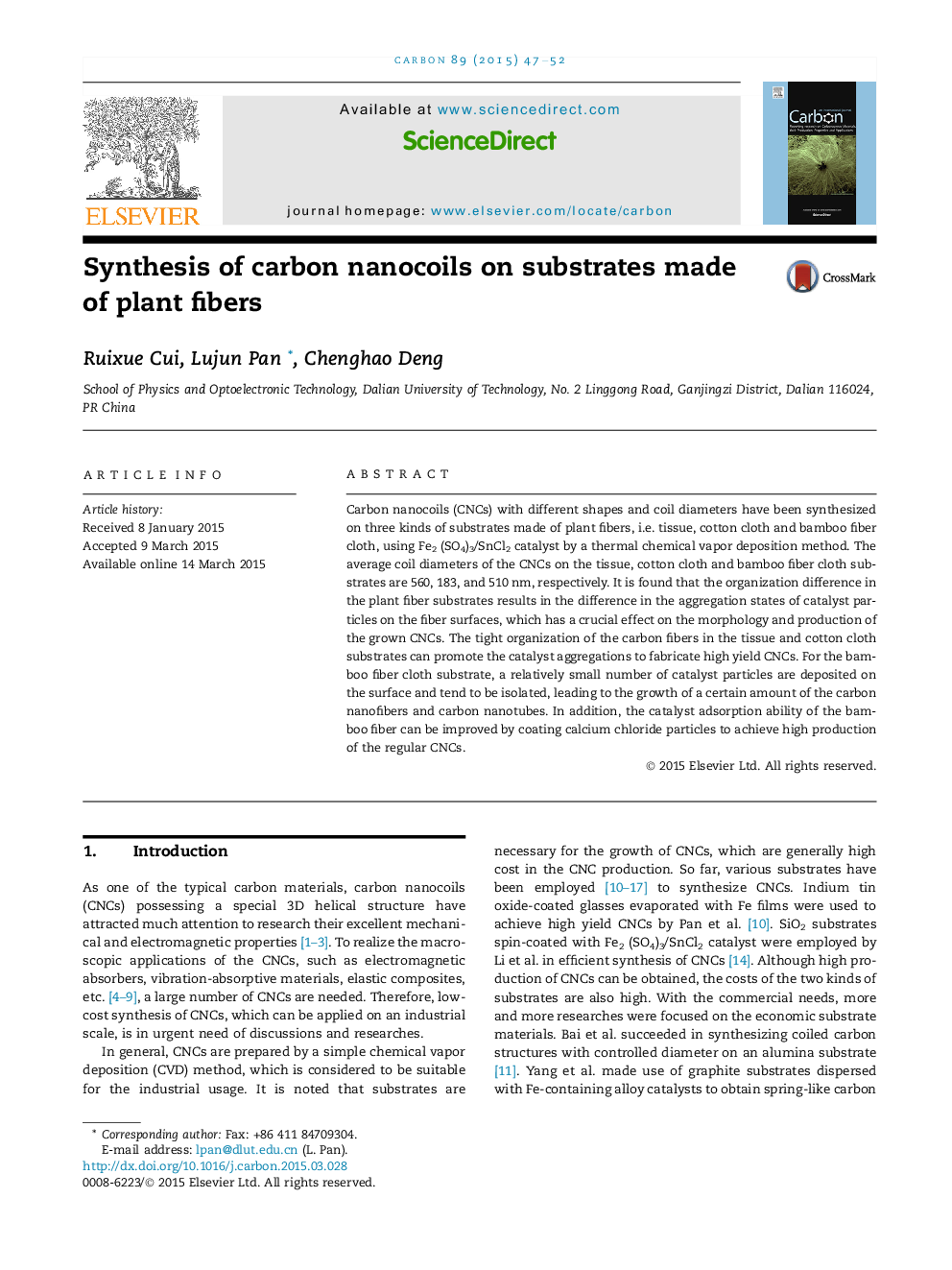| Article ID | Journal | Published Year | Pages | File Type |
|---|---|---|---|---|
| 1413361 | Carbon | 2015 | 6 Pages |
Carbon nanocoils (CNCs) with different shapes and coil diameters have been synthesized on three kinds of substrates made of plant fibers, i.e. tissue, cotton cloth and bamboo fiber cloth, using Fe2 (SO4)3/SnCl2 catalyst by a thermal chemical vapor deposition method. The average coil diameters of the CNCs on the tissue, cotton cloth and bamboo fiber cloth substrates are 560, 183, and 510 nm, respectively. It is found that the organization difference in the plant fiber substrates results in the difference in the aggregation states of catalyst particles on the fiber surfaces, which has a crucial effect on the morphology and production of the grown CNCs. The tight organization of the carbon fibers in the tissue and cotton cloth substrates can promote the catalyst aggregations to fabricate high yield CNCs. For the bamboo fiber cloth substrate, a relatively small number of catalyst particles are deposited on the surface and tend to be isolated, leading to the growth of a certain amount of the carbon nanofibers and carbon nanotubes. In addition, the catalyst adsorption ability of the bamboo fiber can be improved by coating calcium chloride particles to achieve high production of the regular CNCs.
